May 2021: Olive Tree

Volume VI/Issue 2/May 2021


From The Editorial Desk
Church Attendance Rebuilding Slowly But Surely
All across the country I’m hearing that church attendance (of all denominations) is presently about 75 to 80 percent of pre-COVID levels. In the Catholic Church, some people will have become sidetracked and never return. But I believe most genuine Catholics miss being at Mass and are eager to return.
Although the live streaming has been a great emergency measure, it is not a full answer for our long-term needs. It may continue to be an outreach tool, but it does not meet the Biblical definition of church. The word “church” is a translation of the Greek word ekklesia, which is defined as “an assembly” or “called-out ones.”
Church was God’s idea and He obviously always knows what is best. Remember it was Jesus who said, “And I say also unto thee, That thou art Peter, and upon this rock I will build my church; and the gates of hell shall not prevail against it.” (Matthew 16:18).
It is clear that Jesus intended for His people to “church”, to assemble themselves in order to have the strength to move against “the gates of hell.” Hell and its cohorts have fortified their holdings in this world, but they are no match for “church” as the Lord intended it.
For the sake of our families, our society and even for Heaven’s sake, we need “church” to grow strong, stand tall and take a stand against the Devil’s activity in each local area.
Although “church” has become a take-it-or-leave-it matter for a lot of people, that attitude can never be sustained from Scripture. Remember: “Not forsaking our assembly, as some are accustomed; but comforting one another, and so much the more as you see the day approaching. ”—Hebrews 10:25. (Your “Home A Loners” would be wise to consider this verse.)
Skipping church is easy to do,but you can’t clip this verse out of the Bible. Since the word church means “a called out assembly,” we are faced with the duty of going to “church.”
Here is another defining passage.“Now to him who is able to do all things more abundantly than we desire or understand, according to the power that worketh in us; To him be glory in the church, and in Christ Jesus unto all generations, world without end. Amen.”—Ephesians 3:20-21.
The Book of Ephesians is written for me and for you.
Does the pastor have some responsibility to see that the Lord is glorified in the church? He certainly does. He has a big role in seeing to it. But you and I cannot put it all on the pastor. If we are never there when the church has mass, then we are in no position to follow the mandate of verse 21. “To him be glory in the church, and in Christ Jesus unto all generations, world without end.”.
So let’s decide to get church back in the schedule. Let’s not be just electronic spectators. Let’s give the Lord what is due Him on “the Lord’s Day.” Let’s put our wants and our wishes on hold for a few hours and give the Lord the priority He deserves.
If you are in a good, solid, Catholic Church, don’t leave its well-being to someone else. Let’s get on board with energy and with enthusiasm, Let’s go to Catechism Classes. Let’s go to Sunday and daily Mass. Let’s go (as in the case Of some of our Parishes) to mid week Rosary and Bible study. Let’s go out door to door, as the Legion of Mary groups around the country do. The rebuilding after the damage done by the COVID crisis will take awhile, but it will come much more quickly if all of us pitch in and help.
Extra! We are looking for land to buy for Our Lady's House Of Prayer. Lord willing, we will be going out to Arizona after Mass Sunday to look at property. We are looking for at a minimum of 20 acres. The goal we have for Our Lady's House of Prayer will be a place for, of course prayer, a place to have retreats, a church for the community in the area, a place to train priests and lay people (we are tentatively calling it Chrystosom Catholic Bible Institute or CCBI), eventually we desire to have a school to help educate children in the area, and of course a place for monks, lay brothers, sisters, and priests to find solitude, and an atmosphere of prayer. Keep us in your prayers as we travel. Looking forward to visiting with a Priest friend of mine and a Catholic family where I was privileged to participate in their baptisms last year. - Editor

We Are Not Our Own
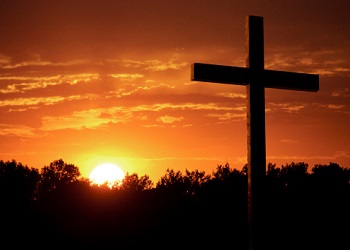
We have been considering the eternal spiritual maxims listed by Saint Alphonsus, beginning with an introduction last December. Although Saint Alphonsus does not list this eternal spiritual maxim, it is fundamental to understand it today.
"Or know you not, that your members are the temple of the Holy Ghost, who is in you, whom you have from God; and you are not your own?" (I Corinthians 6:19)
There is a lot to understand in this simple maxim that you are not your own. You do not truly own anything. God has committed things to our care to use for His holy will. Let us consider what Job said: "And said: Naked came I out of my mother's womb, and naked shall I return thither: the Lord gave, and the Lord hath taken away: as it hath pleased the Lord so is it done: blessed be the name of the Lord." [Job 1:21]
Today the world runs by the philosophy that we are our own, at least in part. For instance the world permits carnal knowledge between people on the basis that our body is our own. In fact, the alleged right for a woman to kill her unborn child is based upon her right to control her body.
And yet, the world is schizophrenic in this regard. If a woman owns her body, why is it illegal in many places for a woman to sell her body in prostitution? She can commit murder, but not prostitute herself? If I own my own body, then why can't I ingest what I please? The world has made certain drugs illegal and regulates the use of others. This shows the insanity of the world and its perfidious maxims, which are inconsistent.
In fact, the world currently runs on the principle of parens patriae. Under this principle the government has ultimate control over people, especially those who cannot take care of themselves. Therefore the government may regulate our lives. This may sound like the system under Communism, but it is in place throughout much of the world today.
Any rights I may possess are ultimately given to me by God in order to fulfill my duties, not as personal property. Of course my property also belongs ultimately to Almighty God. A right a person possesses places a duty on others to respect that right. And yes, God may give us rights in regard to others and to the government. However, we all have a duty to Almighty God, a duty that goes far beyond the legal part of the world.
What has happened is that many are infringing on our rights that in defense we start to defend them. Yes in some places the government is exceeding their authority. However, when we begin defending our self, it is easy to get a wrong idea of what we are defending and start believing that what we are and have is actually ours and nor Almighty God's. This is fatal to the spiritual life, because it soon leads to envy, anger and greed.
How did the early Christians deal with an oppressive government that desired to control them and even take their life for being Christian? They accepted it and prayed for change and yes many gave up their lives, because they knew that their life belonged to God and not to themselves. Do we have the same strength of faith the early Christians had? Are we ready to give up all, realizing we hold it merely in trust from God, the owner of all we have and are?
Speaking of the spirit of martyrdom we all should have, Saint John Eudes writes: "It is the spirit of perfect detachment from the world and every thing that is in the world. Those who are to sacrifice their lives to God must also sacrifice to Him all else besides." Since our lives do not belong to us, but to God, we should be ready to live them all for Almighty God.
Saint John Eudes also advises: "This truth should lead you to recognize once every day, before God, your wretchedness as it is in His eyes, and to renounce Adam and yourself, since Adam and you yourself have sinned and surrendered your nature to the devil. Renounce yourself, then, altogether. Renounce your own judgment and every power and ability you may be conscious of in yourself. For all the power left by Adam in human nature is powerless, and any sense of power you may have is mere illusion, presumption and a mistaken estimate. Nor will you ever have any real power or perfect freedom to do good, except by renouncing yourself, and emerging from- yourself and all that belongs to you, in order to live in the spirit and virtue of Jesus Christ.
"Following this renunciation, adore Christ Jesus; give yourself entirely to Him, and ask Him to take over Adam's rights as well as your own, since by His Precious Blood and death He acquired the rights of all sinners."
Jesus has purchased us at a great price and now owns us out right. When we realize that we are not our own but God's, we become selfless, when before we were self-centered. Let us become God-centered. This is true charity, which Saint Paul does not seek her won. (I Corinthians 13:5)

Perfect Act of Contrition

What Is An Act?
Theologians speak of an act of the will, guiding the heart, soul and spirit, to do something. In this case, we make an Act in regard to one of the Theological Virtues, Faith, Hope or Charity, or an Act of Contrition, when repenting of our sins. This act is a decision to devote our self to this virtue and in doing so, we usually use words to express the intention of our heart.
When we sincerely pray the Apostle's Creed, we begin: "I believe..." Unfortunately the world stresses the second definition of believe rather than first. The second definition of believe is an opinion, such as Chevy is better than Ford. The opposite might be true. However, when we say I believe, we mean the first definition that is: "accept (something) as true; feel sure of the truth of." We exclude the opposite proposition as false, such as that God does not exist. We are saying, God exists, this is the truth and all else contrary to this is false.
Act of Contrition
We begin with the Act of Contrition, because contrition is essential in the Sacrament of penance. No contrition, no benefit from the absolution. There are two types of contrition. Attrition, which is imperfect, is the hatred of sin, because: "I dread the loss of Heaven and the pains of hell." This is sufficient in the Sacrament of Penance, but is still imperfect.
Contrition includes the hatred of sin as the only evil in the world. (See the March 2021 Olive Tree) It also includes a firm purpose of amendment, which includes avoiding the near occasions of sin. Contrition is universal in that it applies at least to all mortal sins. It is supernatural, because it is prompted by the grace of God, and not merely from natural motives. For instance a thief may be sorry he stole something, because he is now going to jail. This is a natural motive. It is sovereign, because we are sorry, because we have offended God. Finally it is interior in that contrition must come from the heart, not just from the lips. "This people honoureth me with their lips: but their heart is far from me." (Matthew 15:8)
Perfect Contrition
Perfect Contrition is the motive of sorrow for our sins, because they are an offense against God, not because of any consequences we may suffer. It is this perfect contrition, which is necessary to restore one to the state of grace after we sin mortally. (Some say we fall into sin, but we deliberately commit a mortal sin. Yes, the flesh may have been weakened by the habit of sins, which Saint Augustine can raise a sin to a necessity, in that it has become so ingrained into our nature.)
Saint Alphonsus the following prayer to express the contrition we have in our heart: "My God, because Thou art infinite goodness, I love Thee above all things; and because I love Thee I am sorry for above all things for having offended Thee."
It does not take a lot of words to express the condition of our heart. Other vocal prayers may also be helpful to express to God just how sorry we have offended Him. In fact, if we are sincerely contrite, we may wish to compose our own prayer to express this to God.
Perfect contrition includes a desire to go to Confession as soon as possible and receive absolution. Without this desire for the Sacrament, we do not have the proper attitude. Saint Thomas Aquinas tells us three Sacraments me be received by desire, when we cannot do so actually, Penance, the Eucharist and Baptism.
Since our contrition should be a permanent attitude of our heart, we should recite Acts of Contrition often, especially when tempted to sin. We do this to remind us where our heart should be, lest we lose track and begin to wander off course.
Act of Faith
We have already considered how the Apostle's Creed is an act of Faith. Our catechism and many prayer books contain prayers to express our Act of Faith. Like all Acts, these words are merely an expression of the thoughts of our heart. We cannot give the Faith merely lip service. We must truly hold in our heart everything Jesus teaches us through His holy Church.
We should often make acts of Faith, but especially when tempted in a matter of Faith.
The Baltimore Catechism gives us this prayer: "O my God! I firmly believe that Thou art one God in three divine persons, Father, Son and Holy Ghost; I believe that Thy divine Son became man, and died for our sins, and that He will come to judge the living and the dead. I believe these and all the truths which the Holy Catholic Church teaches, because Thou hast revealed them, Who canst neither deceive nor be deceived."
Notice, if Jesus' Church teaches it, we believe on the authority of Almighty God. We do not question. Yes, we may not have a perfect understanding of each and every article of Faith, but we accept it on the authority of Who teaches it to us ultimately, Almighty God.
In fact, for the authors of the Olive Tree, this publication is in part an Act of Faith in Almighty God and in the truths, which we expound.
Act of Hope
The Baltimore Catechism gives the following Act of Hope: "O my God! relying on Thy almighty power and infinite goodness and promises, I hope to obtain pardon of my sins, the help of Thy grace, and life everlasting, through the merits of Jesus Christ, my Lord and Redeemer."
We know by Faith that God will keep His promises, and this is our hope as well. The definition we use, a feeling of trust, has become archaic according to an online dictionary. If one goes to Sacred Scripture we are told only to place our trust in God, and this is our hope.
First we hope to obtain pardon for our sins, because this is the first and most important step towards Almighty God. Second we hope for the help of God's grace as Jesus said: "Ask, and you shall receive; that your joy may be full." (John 16:24) And finally having received forgiveness and help, we expect life everlasting.
Goffine asks1: "When should we make an act of Hope? As soon as we come to the use of reason and are sufficiently instructed concerning this virtue and its motives; in time of trouble or of severe temptation against this virtue; when receiving the holy Sacraments; every morning and evening, and especially at the hour of death. (The same thing is to be observed in regard to the acts of Faith and Charity.)"
Act of Charity
The Baltimore Catechism gives the following Act of Charity: "O my God! I love Thee above all things, with my whole heart and soul because Thou art all-good and worthy of all love. I love my neighbor as myself for the love of Thee. I forgive all who have injured me, and ask pardon of all whom I have injured."
Charity is basically love of God and love of neighbor for the love of God. The Fathers of the Church tell us that our love of God shows forth in our love of our neighbor. "But I say to you, Love your enemies: do good to them that hate you: and pray for them that persecute and calumniate you:" (Matthew 5:44) And let us remember that God defines what good is. In charity, we may have to tell someone 'no'.
"But before all things have a constant mutual charity among yourselves: for charity covereth a multitude of sins." (1 Peter 4:8) Charity, when it is perfect includes the Acts of Faith, Hope and Contrition, and thus an Act of Perfect Charity coming from the heart performs the same function as a Perfect Act of Contrition, because if our charity is perfect our contrition must also be perfect.
"And now there remain faith, hope, and charity, these three: but the greatest of these is charity." (1 Corinthians 13:13) Faith will be replaced by knowledge in Heaven and Hope will be fulfilled, whereas charity will last forever.
1. Instruction on the Second Lord’s Day after Easter

Seven Secrets to Prosperity

Wisdom is the key to abundant life.
W- Work hard. There's no such thing as free meals. It's not Christmas everyday. Work more to earn more.
I- Invest. To grow your money we need to invest. Invest in Education. Improve your skills. Invest in life insurance. Invest in mutual funds. Let money work for you and let not your self working for money.
S- Save. Always learn to save for the future. Save for emergency funds, educational fund, travel fund.
D- Donate to God (Malachi 3:10). There's a promise in it.
O- Offering for the Church workers. Reserve funds for church workers allowance i.e. transportation and gas funds, LPG (liquified petroleum gas), food allowance.
M- Money for the poor. Charity is God. God is charity.
S- Satisfaction. Learn contentment. Be grateful for what you have. What you have is God's gift to you.

Whereas I Was Blind, Now I See
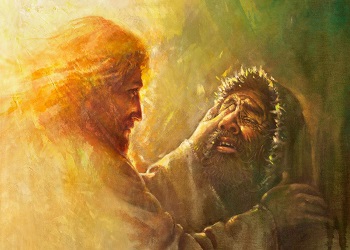
In the Gospel (John 9:1-38), we see our Lord coming to heal a man blind from birth. He does so in confirmation of His own power and of His own benevolence, and in confirmation of the truth which – in the narrative of the Gospel – He had just given before the scribes and the Pharisees, revealing His Divine nature in saying, “Before Abraham was, I am.”
So our Lord comes upon the blind man, and His disciples were inquisitive concerning him, not knowing that the blind man would soon receive his sight, asking who it was that had sinned, the man or the man's parents, that he should have been born blind.
Remember that earlier they had heard Christ say to the paralytic, Behold, thou art made whole: sin no more. Now, upon seeing the blind man and learning that he was blind from birth, they wondered, and sought to understand the reason. To end their bewilderment, the Lord answered and said: "Neither hath this man sinned, nor his parents, that he was thus born blind, but that the works of God should be made manifest in him."
These words of the Gospel do not express a cause, but a consequence. For the causes of things are not always evident nor are they always revealed to the mind of man. Our Lord teaches that here that speculative knowledge of the causes of things is not to be sought in itself, nor does speculative knowledge of the cause of things lead to sanctification. Let those who understand understand. Rather, what is to be sought in any situation is that the works of God may be made manifest, and that God be glorified. When the blind man was healed, God was glorified, and His works were made manifest, by none less than the Son of God Himself, as He says: "I must work the works of Him that sent Me..."
It is no small glory for the Only-begotten Son and Word of God to do the work of Him Who sent Him, the consubstantial and invisible Father.
Further, our Lord says He must work “whilst it is day: the night cometh, when no man can work.”
And here He speaks of the work that is done within each of us, and the work that each of us must do, during this life. But night is coming, when work ceases; that is to say, the end of life is coming for each one. That day approaches, in which all work will cease, and we will be called to render ourselves before the Just judge, who shall pass sentence upon us, saying either, Come, ye blessed of My Father, inherit the kingdom prepared for you, or, Depart, ye cursed, into everlasting fire.
Our Lord rightly declares: "As long as I am in the world, I am the light of the world."
He is the Light, because He noetically – that is spiritually – enlightens the hearts of the faithful and gives light to men's eyes.
"When He had said these things, He spat on the ground, and made clay of the spittle, and spread the clay on his eyes, and said to him: 'Go, wash in the pool of Siloe,' which is interpreted, 'Sent.' He went therefore, and washed, and he came seeing."
Having taken dust from the earth, our blessed Lord and reminds us that it is He Who in the beginning made man out of earth. He did not mix the dust with water, but with spittle, so that it would be known that all the grace proceeded from His most pure lips; and He sent the blind man to the pool of Siloam.
And they that beheld the blind man recalled his former appearance; now that they saw his eyes opened, they did not believe that it was the same man. The most glorious wonder, this great miracle. only moved them to disbelief. In the face of such doubting neighbours, though, he who once was blind did not conceal the good gift which he had received, but unhesitatingly declared, I am he, and he openly proclaimed his healing.
Now, those who were hostile to our Lord envied the blind man for the gift and the miracle which he had received, and they sought to find our Lord and to take Him before the priests of the Temple. They could not find Him, however, since our Lord often was not to be found around those whom He had healed, for our Lord did not seek fame, He did not desire honours, but always and everywhere He showed Himself to be modest.
And so they bring him who had been blind before the Pharisees. And the Pharisees say among themselves, "See what this Jesus is doing on the sabbath; He anoints with clay!" The Pharisees give no thought to the fact that He had healed a blind man; but they were quick to judged and condemn Him because He had made mud. But others said: "How can a man that is a sinner do such miracles?" And, as the Gospel tells us, there was a division among them.
The Pharisees still did not believe that Christ had granted healing to one who was blind. Since they did not believe the neighbours, they interrogated his parents. Although they wished to cover up the miracle, they only threw more light on it, for the parents openly told everyone all that they knew. The Pharisees did not say to the man's parents, "Is this your son who once was blind?" but, "Is this your son, of whom ye say that he was born blind?" In other words, "You have made him out to be blind, and have spread such a story everywhere; how then does he now see?" They slander the parents of the blind man as liars, and press them to denounce their own son, saying, "Since your son can now see, it is clearly a lie that he was blind to begin with."
His parents answered them, and said: "We know that this is our son, and that he was born blind: but how he now seeth, we know not; or who hath opened his eyes, we know not: ask himself: he is of age, let him speak for himself." They therefore called the man again that had been blind, and said to him: Give glory to God. We know that this man is a sinner.
They do not openly and shamelessly tell the blind man to deny that Christ had healed him, but they do so obliquely, always putting forward an appearance of piety. Give God the glory, they say; in other words, admit that Christ did nothing for you. He that was formerly blind answered straightforwardly, saying, "I know not whether He be a sinner; one thing I do know: I was blind, and now I see."
The Pharisees tried to cover up the truth by many and various means, but such is the very nature of truth that the things with which some men think to attack it only serve to make it stronger, and it shines more brightly.
When they questioned him, they sought that he would retract his story. Now since he did not waver, but proclaimed the truth and upbraided them, they condemn him, reproach him with blindness, and drive him out of the synagogue. They hated one who would publicly reprove them, and found his truthful words abominable. They could not stand the rebuke of a poor beggar who showed courage concerning the truth; they were confounded in their falsehood. Such is the great power of truth.
Jesus heard that they had cast him out: and questions the blind man as One Who had heard and accepted what he had said before the Pharisees. They had already said to him, "Give God the glory;" therefore our Lord did not repeat these words, but rather asks, "Dost thou believe on the Son of God?" From this we learn that to believe on the Son of God is to give glory to God with equal honour; for he who honours the Son honours the Father also.
And we, too, brethren, believe on the Son of God – the Creator, Maker and Lord, and worship Him Who has delivered us from darkness, from error and from the curse, and Who has enlightened our souls and bodies, for He is the Light Which came into the world; therefore, let us do the works of light while it is day. Let us keep in mind the future judgement, for the night of death is coming, when no man can work. Therefore let us sow spiritual seed in the soul; let us sow compassion, meekness, compunction, love, long-suffering, goodness, gentleness, forgiveness, peace, joy, and holiness, without which no one will see God.
If the Lord finds us always doing good and being valiant for the truth, He will truly receive us, help us, and deliver us from the attacks and disturbances of visible and invisible enemies who hate us and fight against us. And He will bestow beautiful and incorruptible rewards for our labours; He will conduct us into the enjoyment of His kingdom. May this be granted to all of us, through the grace and love towards man of our Lord Jesus Christ, with Whom to the Father and to the Holy Spirit be glory dominion and adoration, now and ever, and unto the ages of ages. Amen.

The Funny Pharmacy
A joyful mind maketh age flourishing: a sorrowful spirit drieth up the bones. - Proverbs 17:22

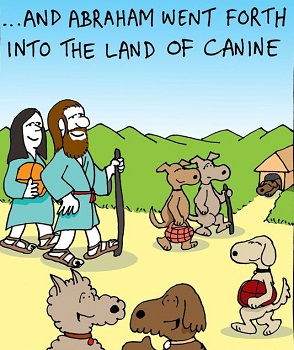
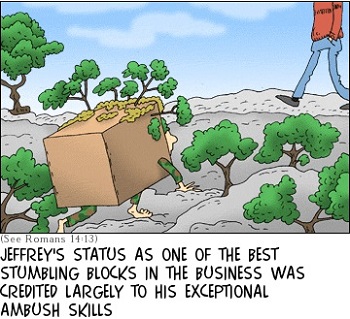
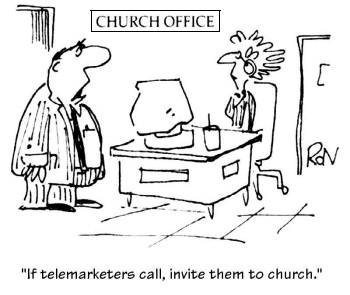


Frequently Asked Questions

Is it possible to obtain a list of who was invited to the conclave?
A list of all of those we personally notified is kept somewhere in the archives. However, that list would not be complete, because some of those we notified in turn notified others.
Each and every bishop consecrated in the Thuc-des Lauriers and Thuc-Carmona lines was notified of the election. This would have been done not only by us, but by the late Miss Heidi Hagen of Geneva, Switzerland, who had contact with them as well.
All of the sedevacantist listings in the late Radko K Jansky's Traditionalist Catholic Directory, which he published from Saint Louis, Missouri. It contained listings of all Traditionalist chapels in the world. He made a serious effort to keep it up to date until shortly before his death in about 1991.
Notable people, who were contacted in addition to the above would be Malachi Martin, who personally endorsed the pre-election book, Will the Catholic Church Survive the Twentieth Century? Elizabeth Gerstner was notified. Also Doctors Hiller and Heller of Einsicht out of Germany, a sedevacantist publication. The publishers of Veritas out of Louisville, Kentucky were notified.
At one point over 200 packages with the pre-election book were sent out worldwide.
For answers to more frequently asked questions, click here: https://www.vaticaninexile.com/frequently_asked_questions.php
The Pope Speaks: May 2021
Our Lady's House of Prayer

"Therefore, behold I will allure her, and will lead her into the wilderness: and I will speak to her heart." (Osee 2:14)
We have begun working on our plan to establish a house of prayer in a rural setting and retiring there for prayer.
The first thing we are looking for is land, between 20 and 40 acres with a price under $100,000. Our location needs a good internet connection, DSL is preferred as we do not think satellite internet will be sufficient for our needs.
Also zoning must be favorable for having multiple laura (small sheds for people to live in and retire to prayer) as well as a place for a church building. This is in addition to the first stage home we are planning to put on the property. We would like a place where we can have a full walk out basement. We also need a place to set up RV hookups, so people can come visit in their RV or trailer.
For which of you having a mind to build a tower, doth not first sit down, and reckon the charges that are necessary, whether he have wherewithal to finish it:" (Luke 14:28)
We are open to any place in the United States and will consider any piece of property. We consider to complete the first stage of this project will require $350,000. We ask your prayers and assistance to assemble sufficient funds to move forward with this project.
"Unless the Lord build the house, they labour in vain that build it. Unless the Lord keep the city, he watcheth in vain that keepeth it." [Psalms 126:1]
Much more could be said on the material side of this project, but the main desire is spiritual.
Apocalypse 12:14: "And there were given to the woman two wings of a great eagle, that she might fly into the desert, unto her place, where she is nourished for a time and times and half a time, from the face of the serpent."
The two wings of a great eagle are either faith and prayer, or the love of God and fear of offending Him, depending on which commentator you read. And so we need to obtain these virtues, while in the desert. Now this desert is not a place devoid of all life. The word actually means: "forsaken, abandoned, deserted." It is possible we may be in a place that has been forsaken by the world, one of persistent poverty to use the modern designation for places where the poor live.
"And the book of Isaias the prophet was delivered unto him. And as he unfolded the book, he found the place where it was written: The Spirit of the Lord is upon me. Wherefore he hath anointed me to preach the gospel to the poor, he hath sent me to heal the contrite of heart, to preach deliverance to the captives, and sight to the blind, to set at liberty them that are bruised, to preach the acceptable year of the Lord, and the day of reward." (Luke 7:17-19) When John the Baptist sent his disciples to Jesus, Jesus told them: "The blind see, the lame walk, the lepers are cleansed, the deaf hear, the dead rise again, the poor have the gospel preached to them." (Matthew 11:5)We desire to preach the gospel to all and support our preaching with assiduous prayer.
Often Jesus retired alone to pray, because prayer is the life blood of our spiritual life. Saint Paul writes: "Pray without ceasing." (1 Thessalonians 5:17) In fact our lives should be a living prayer and the purpose of this project is to establish a place of prayer. We plan on having space available so that you also can come for a time and retire to prayer.
Saint Paul advises married people: "Defraud not one another, except, perhaps, by consent, for a time, that you may give yourselves to prayer; and return together again, lest Satan tempt you for your incontinency." (I Corinthians 7:5) We all need to retire for a time to prayer away from the distractions of the world and it is our hope to establish a place for this very purpose.
The world runs on prayer, and it is our duty as Christians to pray for the needs of the Church and even the world. Today the world need conversion and repentance. Let us remember that conversion and repentance, like charity, begins at home.
Saint John Chrysostom calls the home a little church, in that all of our homes should be houses of prayer. From time to time we all need to retire away from the distractions of home to a place to devote ourselves to prayer.
Then God call some to a life of prayer and solitude. We hope to accommodate them as well. And let us pray for God's guidance as we move forward.


Saint Mark the Ascetic
On The Spiritual Law
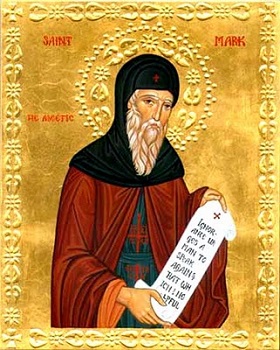
102. Scripture calls these three the daughters of the horseleech, dearly loved by their mother folly (cf. Prov. 30:15.)
103. These three passions on their own dull spiritual knowledge and faith, the foster-brothers of our nature.
104. It is because of them that wrath, anger, war, murder and all other evils have such power over mankind.
105. We must hate avarice, self-esteem, and sensual pleasure as mothers of the vices and stepmothers of the virtues.
106. Because of them we are commanded not to love 'the world' and 'the things that are in the world' (1 John 2:15); not so that we should hate God's creation through lack of discernment, but so that we should eliminate the occasions for these three passions.
107. 'The soldier going to war,' it is said, 'does not entangle himself in the affairs of this world.' (2 Tim. 2:4) For he who entangles himself with the passions while trying to overcome them is like a man who tries to put out a fire with straw.
108. If one becomes angry with one's neighbor on account of riches, fame, or pleasure, one does not yet realize that God orders all things with justice.
109. When you hear the Lord saying that if someone does not renounce all that he has he 'is not worthy of Me,' (Matt. 10:37) apply this not only to money but to all forms of vice.
110. He who does not know the truth cannot truly have faith; for by nature knowledge precedes faith.
Saints from East and West
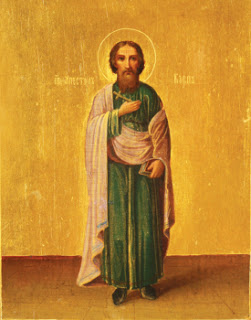
26 May - Saint Carpus of the Seventy.
The Holy Disciple Carpus from the Seventy was a disciple and companion of the holy Apostle Paul. In the Second Epistle to Timothy, the apostle mentions the name Carpus, at the house of whom in Troias he left a phelon and books (II Tim. 4:13).
Knowing Carpus as a man of virtue and possessing a mind of lofty purity, the Apostle Paul made him bishop of Thracian Bereia. The disciple Carpus went preaching the Gospel to the island of Crete. Here he encountered Saint Dionysius the Areopagite. In his reminiscences Dionysius recounts about a miraculous vision to the disciple Carpus.
The holy disciple Carpus died peacefully at Bereia (according to other histories he received a martyr's end during the persecution under the emperor Nero).
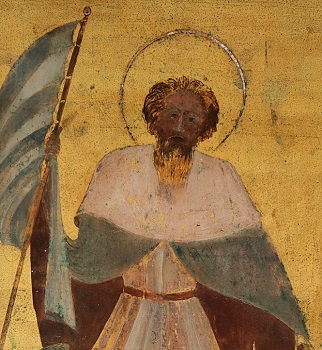
17 May - Blessed Rasso von Andechs.
The famous pilgrimage-place of Grafrath in Bavaria derives its name from Blessed Rasso, Graf von Andechs, who is buried there and whose intercession is sought at his shrine by countless invalids, especially by those suffering from hernia and stone.
The beatus, whose name is also written Ratto, Ratho, Rago and Rapoto, is popularly known as Saint Grafrath. His father was count of Diessen and Andechs, and he had one brother who died on a pilgrimage to the Holy Land, and a sister, Halta, who became the mother of Saint Conrad of Constance. He himself was remarkable for his great stature and for his prowess in all knightly exercises; he also distinguished himself in battle as leader of the Bavarians against the Hungarians.
Peace having been restored, about 948 he laid aside his weapons to undertake pilgrimages to Rome and to the Holy Land from which he brought back numerous relics, the greater part of which are now at Andechs.
On what was then an island in the Amper, under the shadow of the height crowned by the castle afterwards known as the Rassoburg, he built a monastery for Benedictine monks to which he gave the name of Worth. The church was consecrated by Saint Ulric on May 1, 951. The following year Rasso assumed the habit at Worth and in 953 he died there.
Although shortly after his death the monastery and church were destroyed by the Hungarians, the relics of Blessed Rasso were saved, and his tomb escaped the ravages of that period.

Advice You Can Bank On
A Catholic Perspective On Finances
How can immorality lead to financial trouble?
A couple who is struggling financially should look beyond the numbers and discern if there are other issues that need to be resolved. For example, when a man struggles with moral impurity, his bondage to sin affects every aspect of his life, including his marriage and finances.
The following progression traces the damage immorality brings and provides insights about walking in moral freedom.
A lack of self-control brings guilt and doubt to a relationship.
If a couple disregards God’s moral standards before marriage they sow destructive seeds of guilt and doubt in their relationship. Fornication lays a foundation of guilt that will surely affect the couple’s intimacy within marriage. Fornication also promotes a sensual focus rather than a spiritual focus in the marriage, and both self-respect and respect for the other spouse are damaged.
A sensual focus brings coolness in marriage.
A husband expects his wife to fulfill his sexual needs, yet he can be insensitive to her needs when his focus is a selfish one. With a growing sense of guilt and doubt, his wife wonders if her husband really loves her or if he is only using her to gratify his own desires. This fear motivates her to be physically cool toward him.
A reaction leads to decided coldness.
The husband reacts to his wife’s coolness. He demands that she meet his physical needs and is offended and even angry when she doesn’t comply. His wife interprets his demanding attitude and continued insensitivity as confirmation that he does not really love her. She becomes physically cold toward him.
Attempts to prove love with extravagance diminish the unity of the marriage.
The husband senses that his wife has been offended. However, he does not realize the depth of her wounds, and he does not understand the true source of her offense. He mistakenly believes that buying her a few expensive gifts or pleasing her with other unselfish actions will solve the problem.
His wife feels insecure and inadequate, but she accepts his gifts. In fact, she often buys more gifts on her own as she seeks security in temporal things. Their extravagance leads them into financial bondage.
The wife self-righteously condemns her husband’s attentions as simply a means to an end: his satisfaction, not her happiness. As she becomes more and more blind to her own self-centered desires and actions, she becomes more and more sensitive to her husband’s failures and weaknesses.
Debts demand an over-emphasis on work, and a separation ensues.
The husband realizes that his gifts and generous actions did not restore his wife’s broken spirit. He tightens the budget and expects her to cooperate in order to get out of debt. He spends more time at work or gets additional work. This schedule hinders him from meeting his wife’s needs, and she turns from him and concentrates on her own vocation, the children, or the fantasy world of books and television. She may look for sympathy and understanding from the people with whom she works, which heightens the estrangement from her husband. Meanwhile, he may also look to other sources to fulfill his needs, which brings him into further sexual bondage.
Moral freedom brings hope for a new beginning.
This sequence often ends in separation and divorce, because the couple is not open about the mistakes of their past and they do not work things out. However, God is able to bring cleansing and freedom to those who are bound in immorality. The couple must learn that moral freedom is not the right to do what they want, but the power to do what is right. They must depend on God’s aid to help them resolve their conflicts and walk in moral freedom.

Family Matters
A Catholic Perspective
The Holy Art Of Training Children
That our sons may be as plants grown up in their youth; that our daughters may be as cornerstones, polished after the similitude of a palace. (Psalms 144:12)
Watch the artist with his paintbrush in hand. Watch him as he creates a beautiful painting that captivates and motivates those who gaze upon it. He moves with order and purpose, each stroke of his brush creating more of the scene he desires to display. Now look deeper into the heart of this man, this artist, and you will find that he has more in mind than a picture. He is trying to say something. He is attempting to express some deep thought of his heart. As we watch him paint, he makes painting look simple. The colors flow together to show one image after another, until we look with wonder on the finished extension of the artist's heart and hands. You might stop and ask him the question he has often heard, "How did you learn to do that?" We all know what he would say. "It is a gift, an ability that God gave me, but it is a gift I had to develop."
This illustration explains the title of this first article that has been adapted for Family Matters: A Catholic Perspective, very well. The artist's answer to the oft-asked question is a cl;ear revelation of the art of raising children. It is an ability given to us by a loving God, but we must learn to develop this gift. There are several reason why I have chosen the words "holy art" to illustrate child training.
- A Holy Art-because we find in the bible a revelation of sanctified principles that, if followed, all work together to form a beautiful soul filled with Christlike character.
- A Holy Art-because these principles are disciplines for the parents, not for the children. They are rigorous at times,but if we will follow them, we will find ourselves becoming proficient in them.
- A Holy Art-because the subject of child training is a subject that must be studied, learned practiced, and mastered. Oh the joyful results that come as we learn the nuts and bolts of everyday nurturing.
- A Holy Art-because many go about it in a very haphazard way. It is a sort of hit and miss thing to them, here a little, there a little, and of course, they get the same kind of results.
- A Holy Art-because we need to lift theses principles up out the commonplace, where many have laid them, and set them in the realms of the holy again.
Let us pause for a moment of reflection on the definition of the word "art," and see how much encouragement we draw from it for our homes. A dictionary definition of this word can be summed up as follows.
Art: A skill that is attained by study, practice, and observation. A system of principles and methods employed in the creation of some form of beauty.
What a lovely definition of training children. Again, consider the artist and his marvelous ability to create on canvas what he sees and feels in his heart. It is a natural talent given by God the creator. There probably was a point in time when he realized "I have an ability to draw." Maybe at first his parents or a teacher made him aware of the gift. Like most of us, he probably didn't agree with them at first. Once this realization was clear to him, he began to practice. He spent extra time studying the art of drawing and painting. He started observing pictures with a new interest. Trips to the art museum and books on how to draw where his delight. When he had a chance to watch a mature artist draw a picture, he was right there with open eyes and many questions. This is an excellent analogy for our subject at hand. This is a perfect way to approach the following articles that will be posted in Family Matters: A Catholic Perspective. You must have the spirit of a learner.
God has given you an ability. You may question these words as the young unknown artist did, but as you continue to read theses articles you will see that it is true. Understand that we will have to deal with the fall of man in the Garden of Eden. However, remember, we are looking at this ability through the glasses of our "so great salvation." (Hebrews 2:3)
Come reason with me for a moment. From what you know of our great God, would He give us children and then not provide a way for us to train them? In all of His Creation, we see that He has given each animal the instinctive ability to care for and train its young. Well, what about us?
I know and I understand that man is a fallen being because of sin. A separation from God took place. The creature is not what he used to be. sin and failure are the normal way for a man on this earth now. "But God, (who is rich in mercy,) for his exceeding charity wherewith he loved us..." (Ephesians 2:4). This God "commendeth his charity towards us; because when as yet we were sinners, according to the time, Christ died for us." (Romans 5:8). There is a way a man can be salvaged! There is a way for man to train the next generation of children. We have a salvation presented to us by the Church and in the Holy Scriptures that not only shows us the way, but provides a way to be saved, delivered, justified, sanctified, and many other such things.
Maybe you feel that your home is in need of a salvage job. God can do it, for He is in the salvage business. That transformation may begin with the sacrament of Baptism also called the "new birth."
On the other hand, Since your baptism as an infant, maybe as you grew to the age of accountability or later in your teens or adult years, you have lost the reality of the grace of God that is in Christ Jesus our Lord. God has the answers to the needs of your home. We simply need to get under his blessings, and the rest will come.
If you are a Christian baptized, confirmed, and faithful to God, He has given you an ability to raise your children in the nurture and admonition of the Lord. That ability is there, even though it may be lying dormant, needing an awakening. It is there needing only to be stimulated and motivated. Just like the artist, who set his heart to learn all he could, you need to rise up and develop it. Turn the focus of your heart toward your precious children, and begin to study, learn, and observe how you can train them to the glory of God.
We have already referred to God's heart for our children which was spoken by the prophet Malachi. God is seeking a godly seed. This is the deep longing of His heart and a major theme of revelation in the Scriptures. He is pursuing godly children for Himself.. He is intensely interested in your child. You can't go wrong when you turn your attention to something that is very near to God's heart.
We are co-labors with God in the rearing of little ones and big ones. We are not alone. We have not been left without an instruction manual. We are not without a teacher in this awesome task. What an exciting prospect, working together with this glorious, omnipotent, all-wise God of heaven to raise your children.


Books to feed your faith!
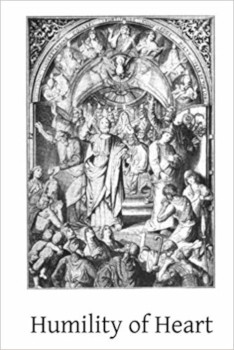
Humility of Heart
$4.95
To his own soul Cardinal Vaughan found so much benefit from the cultivation in it of Humility, that he resolved, at no small cost to himself, in the feeble state in which he then was, to gird himself and to go forth sowing broadcast, into the soil of the hearts of the laity as well as of clergy, this despised little mustard seed of which men speak so much but know so little. It was Padre Gaetano's work on Humility that had been the instrument, in God's hand, of helping the Cardinal. Accordingly in his zeal for souls he proposed to put it into English, so as to bring the work within the reach of all such as care for the health, growth and strength, of their own individual souls in solid virtue. That the Cardinal has left us a precious legacy in this treatise on Humility will, I feel sure, be the verdict of all who study, or who only peruse these pages, done into English from the Italian of the devout Minor Capuchin whose death occurred over two centuries ago. Between the covers of this unpretending volume there is nourishment for all who "hunger and thirst after justice"-----for the proficient in spiritual life as well as for the beginner-----Humility, as it were, holding in itself all those elements that are needed to build up the strong Christian man. In it the soul will find a sovereign remedy for its many ills, a matchless balm for its many wounds, while a soul-beauty all is own will spring up in all who shall learn how to use it wisely under the guidance of the Holy Spirit." He who is truly humble," says St. Bernard, "knows how to convert all his humiliations into humility," while out of humility God can raise a soul to what otherwise might be, giddy heights of sanctity. If anyone should need a proof of this statement I will refer him to any chapter in the life of any Saint in our Calendar. For a moment gaze into the face of "the Woman clothed with the Sun" and remember the words, "Respexit humilitatem ancillae suae." The height of Mary's sanctity is gauged by the depth of her humility: "Exaltavit humiles." To the Clergy and Ladies of Charity, to whom the Cardinal dedicates these "Thoughts and Sentiments," this volume will come with very special meaning. It enshrines the last words of a great Churchman, of a truly spiritual man, while it conveys a special message from the Cardinal's heart to all readers. This treatise is a sort of last will and testament of Cardinal Vaughan, bequeathed to those with whom he was most intimately associated in work for the good of souls. It is a legacy from one who made Humility a life-long study, and who had more opportunities than most of us know of making tremendous strides in it, through the humiliations which he welcomed as most precious opportunities offered him by God for the salvation and sanctification of his soul. May he rest in peace.
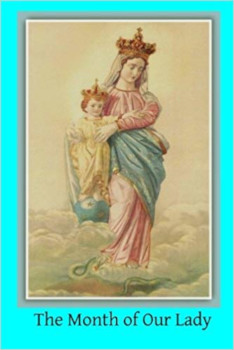
The Month of Our Lady
$17.95
DEVOTION to our Blessed Lady has been so long established among the faithful and is so universally known and practised, that any explanation on my part is unnecessary and superfluous. The compiler and translator has been induced to think that he would render a service to religion, and at the same time pay a tribute of devotion to the Mother of God, by presenting this old work in a new English dress. That this little book may promote and foster among the faithful deep and heartfelt devotion to the Blessed Virgin Mary. As a woman was instrumental in the fall of man, it was the will of God that a woman should co-operate in man's redemption. During forty centuries the Lord, in the language of Isaias, observed attentively the illustrious women who from time to time appeared, in order to choose her who should be most worthy of himself and best adapted to the plan of the redemption of man. Sara presented herself in the splendor of her wealth, Rebecca in the lustre of her beauty, and Rachel in the elegance of her grace; but their wealth, beauty, and grace had no attractions for the Most High. Ruth, Jahel and Judith, Abigail and Esther, appeared in succession; but none of these was chosen. They were all figures of that exalted maiden in whom the virtues and worth of each and all of them were to be united. Who then will be that illustrious woman foretold by the prophets, longed for by the patriarchs, foreshown from the earliest days in symbols and figures so numerous and so various, and promised by the Almighty from the beginning? ,Lovely daughter of JoachiIn and Anne, thou art the chosen one! Although many maidens have arrayed themselves in garments of glory, Mary far surpasses them in abundance of merit and fulness and richness of reward. Mary, as well in the order of nature as in the order of grace and glory, far excels all women, all just souls, and even all angelic beings united; for she alone attracted the especial preference of Almighty God, and was selected by him to be the mother of his Son, and thus to cooperate in our redemption. Wishing to consecrate to the honor of Our Lady the month of May, we shall commence our exercises of piety by considering the principal motives which urge us, as Christians, to pay to her the tribute of our devotion. The first is because amongst all created beings she is adorned with transcendent sanctity, the second because she is the mother of God and also our mother.
Will the Real Catholic Church Stand Up?
Kindle $2.99 / Paperback $9.95
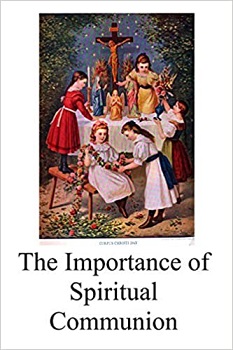
The Importance of Spiritual Communion
Kindle $2.99 / Paperback $5.99
If we cannot receive Holy Communion actually, then let us do so spiritually. These prayers and instructions have been gathered from the Saints and other venerated spiritual writers. Spiritual Communion has been a part of the spiritual life for decades. Growing up I was instructed to make a Spiritual Communion, when I could not go to Communion such as when I assisted at a second Mass. The same is true if one finds oneself at Mass, but not fasting. There are times coming, when it will be difficult, if not impossible to assist at the Holy Sacrifice of the Mass. We should be prepared for such times.
For More Good Traditional Catholic Books:

Crust-less Spinach & Cheese Egg Pie

Ingredients
1 tablespoon vegetable oil
1 onion, chopped
1 (10 ounce) package frozen chopped spinach, thawed and drained
5 eggs, beaten
3 cups shredded Muenster cheese
¼ teaspoon salt
⅛ teaspoon ground black pepper
Directions
1. Preheat oven to 350 degrees F (175 degrees C). Lightly grease a 9 inch pie pan.
2. Heat oil in a large skillet over medium-high heat. Add onions and cook, stirring occasionally, until onions are soft. Stir in spinach and continue cooking until excess moisture has evaporated.
3. In a large bowl, combine eggs, cheese, salt and pepper. Add spinach mixture and stir to blend. Scoop into prepared pie pan.
4. Bake in preheated oven until eggs have set, about 30 minutes. Let cool for 10 minutes before serving.
The Hermit's Complete Bread
250 g Wheat Flour
150 g Rye Flour
50 g Barley Flour
50 g Chickpea Flour
30 g Vital Wheat Gluten
25 g Lentil Flour
25 g Millet Flour
15g salt
2 teaspoons Instant Yeast
350 g warm water, about 110F, 43C.
This is a delicious and nutritious bread to keep you going on days of fast, or any time at all!
In a large bowl, combined all dry ingredients until well blended together. Add water and mix together well to form the dough. If using a stand mixer, knead the dough using a dough hook for about 7-8 minutes, or until the gluten develops. If kneading by hand, turn the dough out onto a very lightly floured surface and knead approximately 10 minutes (or more) until the dough comes together and the gluten develops.
Place dough in a covered bowl to rise for about an hour.
After rise, preheat oven to 350F (175C). Turn out the dough onto a work surface and form into a loaf or a boule as desired.
Score top of loaf and place on a baking sheet lined with parchment paper (or liberally dusted with corn meal).
Bake the loaf for 35-40 minutes, until golden brown and sounding hollow when tapped.
Let bread cool on a rack before slicing. Enjoy!
Video sermons and instructions: Timeless timely truths for living the Faith
Fifth Sunday after Easter, 2013.
Ascension 2013.
The Sunday after the Ascension, 2013.
Lamp and Light: Gospel of Matthew 3:1-6, Part 2

Encouragement for Today
Therefore encourage one another and build one another up.... I Thessalonians 5:11
We believe that through our assorted podcasts, Vlogs, audio downloads and devotional blogs, you will find an assorted Treasure Chest of...
- Sermons
- Classic Catholic Audio Books.
- Devotionals
- Scripture Studies
- Catechism Lessons
- Old-Time Christian radio programs
- Catholic Videos
...that will be a help in your faithful walk with the Lord.
LEARN MORE AT THE ENCOURAGEMENT FOR TODAY WEBSITE: https://www.encouragementfortoday.com
FAKE SPIDER
“Be you humbled therefore under the mighty hand of God, that he may exalt you in the time of visitation: Casting all your care upon him, for he hath care of you.”
- 1 Peter 5:6-7

One of the spider’s virtues is that it loves to eat flies. However, not all spiders catch flies in their webs.
The jumping spider stalks its prey until, like a tiny tiger, it is close enough to pounce. Rather than defining its territory with a web, the jumping spider takes its territory with it, in a manner of speaking. Wherever the jumping spider is, it becomes its territory. When one jumping spider encounters another, they wave their legs at each other, warning each other to back off. Herein lies the tale of how one species of fruit fly is able to outsmart the spider. Unlike most fruit flies, this particular species has stripes on its wings. When it waves its wings over its head, it looks something like a jumping spider declaring its territory. When stalked by a jumping spider, the fly is able to convince the spider that it’s another jumping spider protecting its territory.
Researchers have discovered why this trick works even though the fly doesn’t look much like a spider. The spider’s response to the pattern is pre-wired into its brain and is triggered by certain cells in its eyes. These cells are only activated by a display of the pattern. The spider automatically reacts to the pattern. All the fly has to do is fake the pattern and it’s safe!
The fruit fly’s strategy requires a sophisticated knowledge of the jumping spider’s nervous system as well as its behavior. It’s safe to say that no fruit fly was able to create this strategy. It could have been authored only by the God who created them both.
Prayer: Dear Lord, You care for all of Your creatures and do so in ways that create wonder in us. I pray that Your care for me will always be such that it creates wonder and praise from me as well as others. Amen.
Catechism Catch-Up
Hallowed Be Thy Name
What does this first request "Hallowed be Thy Name" mean? The word "hallowed" comes from the same root from which we get many other words in the New Testament such as "sanctify", "holy", "saint" etc. It means "set apart" - that is, "set apart from all that is evil and unclean." So the request is, "Father, let your name be feared and revered and honored and glorified." In other words, since this is the first petition, it implies that the greatest longing of our hearts is that God will be feared on the earth. Is that truly our greatest longing? The guilt of man can be summed up in one sentence: "THERE IS NO FEAR OF GOD BEFORE THEIR EYES." (Romans 3:18) "The fear of the Lord is the beginning of wisdom." (Proverbs 1:7). In other words, it is the alphabet of the Christian life. If you don't learn your ABC's you can't learn geometry, chemistry, physics, or anything else. In the same way if you don't learn the ABC of the Christian life, the fear of God, you can make no spiritual progress.
A good test of our spirituality is whether we are more concerned about God's Name than our own name. If you hear that someone is ruining your name how would you react? Passionately perhaps? How do you react when you realize that the Name of Jesus is being dishonored ? The Name of God is blasphemed among the heathen today because of the behavior of God's people (Romans 2:24). Does that grieve us? As you see the Name of Jesus Christ being dishonored, does it hurt you? Has it ever brought you down on your knees before God with a burden in your heart that the Lord's Name should be honored in your country? That is one test of our spirituality.
In Acts 17:16 we read that Paul's spirit was stirred within him when he saw all the idols that the Athenians worshiped. He was furious with Satan. If we are filled with the Holy Spirit, we'll be stirred with anger against Satan as well when we see the idolatry in our land. Jesus' spirit was stirred with anger when He saw people making money in the name of God in the temple. If we are in tune with God, we'll be angry also at the dishonor that is brought to the Lord's Name in our land today, through people making money in the Name of Christ.
Everything for God's Glory
Consider 2 Kings 17:33, "And when they [feared] and worshiped the Lord, they served also their own gods" Applying this to ourselves it would mean that we symbolically worship God on Sundays but actually worship our own idols all the time. We have all grown up considering certain activities to be holy such as reading the Bible, praying, fasting, etc. Other activities like eating, drinking, sleeping, talking and buying things, etc., we have considered to be secular. The result of this type of thinking is that you may feel that your religious activities have to be done for God's glory. But having done that, you can live another life in your home and in the world - backbiting and gossiping and quarreling with people etc., Then when you go to Mass a few days later, you feel you must be holy once again. That is hypocrisy. Paul says in 1 Corinthians 10:31, "Therefore, whether you eat or drink, or whatsoever else you do, do all to the glory of God." Every single activity in our life must be done for the glory of God.
Brother Lawrence was a cook in a monastery, many years ago. He used to say, "Whether I am washing the dishes with all the clatter of the plates around me or whether I'm working in the kitchen, I can preserve my soul with as much serenity in God's presence as when I am on my knees partaking of the bread and the cup." That is to live in the presence of God at all times - realizing that all that we do is holy.
Right Motives in Prayer
Understanding this petition in this prayer correctly, will affect the motives in our praying as well. Very often our prayers are not answered because they are offered with wrong motives. But if a man really prays, "Hallowed be Thy Name" as his primary request, he cannot have a wrong motive in his prayers. His prayer is "Lord, no matter what my circumstances may be, whether You grant my request or not, let Your Name be glorified."
David once had a great longing to build a temple for God. That was a good desire. But we read in 2 Samuel 7:12-13, that God said, "No, I'm not going to use you to build the temple. I'm going to use Solomon." And when David heard that, he didn't become sour. He didn't complain. All that he said to God was, "That thy name may be magnified for ever" (2 Samuel 7:26). David was quite prepared to be set aside, if only God's Name was glorified. That's a good example for all of us to follow.
It gets rid of a whole lot of selfish motives, when we can truly pray, "Father, hallowed be Thy Name - at any cost."
Remember the words of Jesus, "I say to you, unless the grain of wheat falling into the ground die, Itself remaineth alone. But if it die, it bringeth forth much fruit. He that loveth his life shall lose it; and he that hateth his life in this world, keepeth it unto life eternal. What shall I say? Father, save me from this hour. But for this cause I came unto this hour. Father, glorify thy name." (John 12:24,27,28).
Jesus practiced what he preached. Even if it meant death, He wanted His Father's Name to be glorified. That's why He could say to His Father at the end of His earthly life, "I have glorified thee on the earth" (John 17:4).
Most Catholics never rise up to this level in all their life. They know nothing of this wonderful God-centered life; and therefore they know nothing of what it means to be truly spiritual. Their spirit is completely foreign to the spirit of heaven.
In heaven, everyone's prayer is, "Lord, let your Name be glorified." If we don't partake of that spirit now, how will we dwell in heaven for all eternity? God wants us to partake of the spirit of heaven right now, on earth. That's why He has given us His Holy Spirit.
Finally, let's look at Malachi 3:16: "Then they that feared the Lord spoke every one with his neighbour: and the Lord gave ear, and heard it: and a book of remembrance was written before him for them that fear the Lord, and think on his name."
God has a list of names - of those who fear Him and who are concerned about the honor of His Name. Most translations have god saying about these people that they are His own special possession, His treasure, His jewels (vs.17). God has a lot of earthenware pots in His house, but He's got some gold and silver vessels too! (2 Timothy 2:20-21).
All I can say is "I want my name to be in that book of remembrance that God has, of those who fear Him, who are concerned about His Name, and whose greatest longing is that the Lord's Name should be glorified AT ANY COST."
That phrase that comes at the end of the third petition - "on earth, as it is in heaven" - applies to all the first three petitions.
And so our prayer is, "Father, hallowed be Thy Name on earth as it is in heaven. Just like the angels fear You and cover their faces and worship You saying, `Holy, Holy, Holy', I long with all my heart that my fellow-believers and I will fear and reverence You always. Amen."
READ MORE FROM THE TRADITIONAL CATECHISM AT THE WEBSITE: https://www.traditionalcatechism.com
Living Catholic:
Understanding Postures of Prayer: Letting Your Posture Express The Attitudes of Your Heart
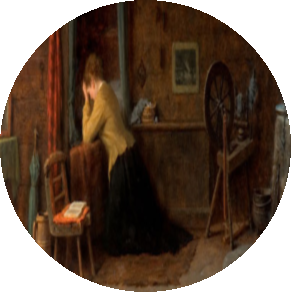
In the Biblical accounts of prayer, many postures are described. Abraham fell upon his face before God. (See Genesis 17:3, 17.) Moses prayed with his hands outstretched. (See Exodus 9:27–29.) King Solomon knelt in prayer. (See I Kings 8:54.) Jesus prayed looking up into heaven. (See Mark 6:41, John 11:41, and 17:1.)
Communication with God does not require a certain physical position, but postures do give expression to the attitudes of our hearts. Here we will look at eight postures of prayer, discuss their symbolism, and see how they relate to the beatitudes Jesus presented in the Sermon on the Mount:
Blessed are the poor in spirit: for theirs is the kingdom of heaven. Blessed are the meek: for they shall possess the land. Blessed are they that mourn: for they shall be comforted. Blessed are they that hunger and thirst after justice: for they shall have their fill. Blessed are the merciful: for they shall obtain mercy. Blessed are the clean of heart: for they shall see God. Blessed are the peacemakers: for they shall be called children of God. Blessed are they that suffer persecution for justice' sake: for theirs is the kingdom of heaven. Blessed are ye when they shall revile you, and persecute you, and speak all that is evil against you, untruly, for my sake: Be glad and rejoice, for your reward is very great in heaven. For so they persecuted the prophets that were before you. (Matthew 5:3–12).
Lying Prostrate Before God
No position symbolizes humility better than being on our faces before God. This position of prayer demonstrates the beatitude of being poor in spirit. When Jesus described Himself, He said he was “meek, and humble of heart” (Matthew 11:29.)
A wise way to begin each day is to get on our faces before God and acknowledge our unworthiness, inadequacy, and inability to accomplish His will. We should ask for His mercy, trusting that His strength and goodness will sustain us throughout the day. Lying prostrate before God expresses the following attitudes:
- It is an acknowledgement of our total unworthiness.
When God made a covenant with Abraham, Abraham recognized his unworthiness before God and “fell flat on his face” before the Lord. (See Genesis 17:1–22.) - It is recognition of the need for God’s mercy.
When the leper came to Jesus for healing, he fell on his face and begged for mercy, saying, “Lord, if thou wilt, thou canst make me clean.” (Luke 5:12.) - It is a right response to a serious crisis.
Often when the leaders of Israel faced impossible situations and knew that only God could deliver them, they fell on their faces before Him and sought His aid. (See Numbers 20:2–6 and Joshua 7:1–6.)
Kneeling Before God
When we repent of our sins, we appeal to the Lord for His mercy and forgiveness. Kneeling before the Lord is a symbol of the heart attitude we should have to make such a petition. It reflects the beatitude of mourning over sin and expresses the following attitudes:
- It acknowledges the Lordship of Jesus Christ.
Kneeling before God provides a visual image of submission to His authority. One day every knee will bow before God, and every tongue will confess that Jesus is Lord to the glory of God. (See Philippians 2:9–11.) - It is a sign of earnest appeal.
King Solomon knelt when he asked God to bless the Temple and the people of God. (See I Kings 8:54.) Elijah knelt in earnest prayer when he asked the Lord to send rain to end Israel’s drought. (See I Kings 18:41–46.) - It is a sign of personal humility.
The psalmist humbled himself before the Lord and encouraged others to do the same: “Come let us adore and fall down: and weep before the Lord that made us.” (Psalm 95:6).
Bowing Before the Lord
One who bows before God conveys an attitude of honor, gratitude, and faith, acknowledging that all things come from His hand. When Job suffered great losses, he bowed down on the ground: “Then Job rose up, and rent his garments, and having shaven his head fell (bowed) upon the ground and worshipped, And said: Naked came I out of my mother's womb, and naked shall I return thither: the Lord gave, and the Lord hath taken away: as it hath pleased the Lord so is it done: blessed be the name of the Lord.” (Job 1:20–21). This position of prayer reflects the beatitude of meekness and expresses the following attitudes:
- It is a sign of reverence.
In some cultures, one who wants to express reverence and respect for another will bow before him. The deeper the bow, the greater the respect he shows. - It is an expression of worship.
When God answered the prayer of Abraham’s servant, the man “Which when Abraham's servant heard, falling, (bowing himself) down to the ground he adored the Lord.” (Genesis 24:52).
Standing Before the Lord
To stand before a ruler indicates that you have a legal right to be there. It is only through the righteousness of Jesus Christ that we are able to approach God as His children: “. . . we have an advocate with the Father, Jesus Christ the just: And he is the propitiation for our sins: and not for ours only, but also for those of the whole world.” (I John 2:1–2).
This position of prayer reflects the beatitude of hungering and thirsting for righteousness and expresses the following attitudes:
- It represents our position in Christ’s grace.
“Being justified therefore by faith, let us have peace with God, through our Lord Jesus Christ: By whom also we have access through faith into this grace, wherein we stand, and glory in the hope of the glory of the sons of God.” (Romans 5:1–2). - It symbolizes our preparation for battle.
“Therefore take unto you the armour of God, that you may be able to resist in the evil day, and to stand in all things perfect. Stand therefore, having your loins girt about with truth, and having on the breastplate of justice, And your feet shod with the preparation of the gospel of peace: In all things taking the shield of faith, wherewith you may be able to extinguish all the fiery darts of the most wicked one. And take unto you the helmet of salvation, and the sword of the Spirit (which is the word of God). By all prayer and supplication praying at all times in the spirit; and in the same watching with all instance and supplication for all the saints:” (Ephesians 6:13–18). - It shows readiness to serve.
One expression that describes serving another person, especially a sovereign, is to “stand before” that person. Daniel and his companions were to serve the king after a period of preparation, “. . .afterwards they might stand before the king.” (Daniel 1:5). Since we have been “made free from sin,” we become “the servants of justice” (Romans 6:18).
Sitting Before the Lord
In Scripture, sitting is a position of authority. When the king or rulers of a city sat in their official places, they were in a position to rule and judge and to have their judgments carried out. This prayer position reflects the beatitude of giving and receiving mercy, and it expresses the following attitudes:
- It reminds us that all believers are seated with Christ in heaven.
When we recognize our sinful conditions before God, repent of our sins, and believe on Jesus Christ, and born again in baptism, we are adopted by God. We are seated with Christ at the right hand of the Father. (See Ephesians 1:15–23 and 2:4–7.) - It represents God’s call to forgive offenders.
Jesus told His disciples, “For if you will forgive men their offences, your heavenly Father will forgive you also your offences. But if you will not forgive men, neither will your Father forgive you your offences.” (Matthew 6:14–15). The Apostle Paul wrote, “Let all bitterness, and anger, and indignation, and clamour, and blasphemy, be put away from you, with all malice. And be ye kind one to another; merciful, forgiving one another, even as God hath forgiven you in Christ.” (Ephesians 4:31–32).
Looking Up to Heaven
Looking a person in the face indicates confidence and honesty. It is indicative of an open, trusting relationship. The Gospels record many instances when Jesus prayed, looking up into heaven. This position of prayer reflects the beatitude of being pure in heart and expresses the following attitudes:
- It demonstrates where our help comes from.
Looking up to God in prayer serves as a testimony that we are putting our hope in Him and waiting on Him for help. “I lift up my eyes to the hills. From where does my help come? My help comes from the Lord, who made heaven and earth” (Psalm 121:1–2). - It displays confident faith.
At the tomb of Lazarus, Jesus prayed with faith and thanksgiving before He raised Lazarus from the dead: “. . .They took therefore the stone away. And Jesus lifting up his eyes said: Father, I give thee thanks that thou hast heard me. And I knew that thou hearest me always; but because of the people who stand about have I said it, that they may believe that thou hast sent me.” (John 11:41–42). - It indicates intimate fellowship with God.
Jesus never sinned. He enjoyed perfect fellowship with His heavenly Father. When He prayed on the night before His crucifixion, “These things Jesus spoke, and lifting up his eyes to heaven, he said: Father, the hour is come, glorify thy Son, that thy Son may glorify thee. As thou hast given him power over all flesh, that he may give eternal life to all whom thou hast given him.” (John 17:1–2).
Stretching Forth the Arm
The Apostle Paul wrote to Timothy: “I desire therefore, first of all, that supplications, prayers, intercessions, and thanksgivings be made for all men: For kings, and for all that are in high station: that we may lead a quiet and a peaceable life in all piety and chastity. For this is good and acceptable in the sight of God our Saviour, Who will have all men to be saved, and to come to the knowledge of the truth.
. . . . I will therefore that men pray in every place, lifting up pure hands, without anger and contention.” (I Timothy 2:1–4, 8).
In the Scriptures, the outstretched arm was symbolic of seeking God’s mercy and blessing. This position of prayer reflects the beatitude of being a peacemaker and expresses the following attitudes:
- It appeals to God’s sovereign power.
Before Pharaoh released the people of Israel from slavery, God sent ten plagues to the nation of Egypt. God thus demonstrated His ownership over all creation. When Pharaoh pleaded with Moses to ask God to stop the hailstorm, “Moses said: As soon as I am gone out of the city, I will stretch forth my hands to the Lord, and the thunders shall cease, and the hail shall be no more: that thou mayst know that the earth is the Lord's.” (Exodus 9:29).
When the Israelites fought against the Amalekites in the wilderness, Moses stood on a hill overlooking the battlefield with his arms outstretched, holding the rod of God: “ And when Moses lifted up his hands, Israel overcame: but if he let them down a little, Amalec overcame.” (Exodus 17:11). - It reflects God’s redeeming work: salvation.
Recalling God’s provision for past needs renews our faith in present situations. Moses often called the people of Israel to remember the great works God.
Before Israel entered the Promised Land to conquer it, Moses encouraged them not to fear the mighty inhabitants of the land: “Fear not, but remember what the Lord thy God did to Pharao and to all the Egyptians,The exceeding great plagues, which thy eyes saw, and the signs and wonders, and the strong hand, and the stretched out arm, with which the Lord thy God brought thee out. . .” (Deuteronomy 7:18–19). - It demonstrates worship and petitions God’s blessing.
When King Solomon dedicated the Temple to God, he sought God’s blessing on it. “Solomon stood before the altar of the Lord in the presence of all the congregation of Israel, and spread forth his hands toward heaven: and he said, Lord God of Israel, there is no God like thee, in heaven above, or on earth beneath, who keepest covenant and mercy with thy servants that walk before thee with all their heart . . . . O Lord my God, . . . hearken unto the cry and to the prayer, which thy servant prayeth before thee today: that thine eyes may be open toward this house night and day, even toward the place of which thou has said, My name shall be there . . .” (I Kings 8:22–23, 28–29).
Leaping for Joy
Rather than being discouraged and defeated by trials and persecution, we are to “glad and rejoice” (Matthew 5:12). This phrase in the Greek indicates the outward action of leaping and skipping, an expression of great inward joy. This position of prayer reflects the beatitude of rejoicing in the midst of persecution and expresses the following attitudes:
- It displays absolute confidence in God’s faithfulness.
At sporting events, loyal fans leap for joy when their team wins. The pain and strain of the game are worthwhile in light of victory. In the midst of persecution, we can leap for joy, because we know that God’s triumph over evil will be the final outcome. “For that which is at present momentary and light of our tribulation, worketh for us above measure exceedingly an eternal weight of glory. While we look not at the things which are seen, but at the things which are not seen. For the things which are seen, are temporal; but the things which are not seen, are eternal.” (II Corinthians 4:17–18). - It confirms that eternal things are our highest priority.
Personal possessions, reputation, or health may be lost as a result of persecution. However, compared to the eternal rewards we gain through such suffering, these losses are less significant. Paul said, “For I reckon that the sufferings of this time are not worthy to be compared with the glory to come, that shall be revealed in us.” (Romans 8:18).
Whatever posture you assume, prayer is an important part of your relationship with God. The Apostle Paul challenges us to be faithful in this discipline: “Be careful for nothing; but in every thing, by prayer and supplication, with thanksgiving, let your petitions be made known to God. And the peace of God, which surpasseth all understanding, keep your hearts and minds in Christ Jesus.” (Philippians 4:6–7).
To Learn More Principles For Life Go To: Resources: Principles of Life


Pray for the Holy Father! Pray with the Holy Father!
- Your prayers are asked this month and every month for the intentions of the Holy Father, Pope Michael.
- Pray for the Holy Father in the preparation for the tenth anniversary of His Holiness' Coronation on Friday, December 10, 2021.
- Your prayers and support are asked in a special way for the soon to be established House of Prayer.
- Pray especially that the Holy Ghost inspires and helps us prepare spiritual manuals and days of recollection to make available to all.
- Keep in your prayers our Podcast Ministry, a new way to reach out in the missionary work of the Church! We ask for prayers for our other activities world wide. We have made good contacts in the Philippines and Japan and ask prayers that these contacts will bear much fruit for the salvation of souls.
- Be sure to keep St. Helen Catholic Mission in your prayers. Why not go on over to the site now and see what they have to offer and how you might be able to help!
- Also we ask you to keep in prayer our increasing missionary work in the United States and elsewhere.
- Pray for those outside the Church and those who do not know God, that they may see the light of grace and be led safely home to the refuge of the Holy Catholic Church.
- As always, we also ask that you pray for yourself! Never forget your own state of soul. God is calling you to His service in His love. We know that our Lord can count on you to answer.
- We are all praying especially for you, too. May you correspond with every grace of God!
- In what other needs or intentions may we pray for you? Let us know!
- Let us remember that the Church runs on prayer. Without your prayers, God will not work in hearts and souls to bring them to a knowledge of the truth. (I Timothy 2:4)


To Donate online go to:

To Donate by Mail:
Our address is
Vatican in Exile
829 NE Chester
Topeka, Kansas 66616
Make Checks payable to:
Vatican in Exile

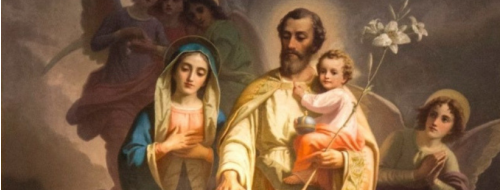
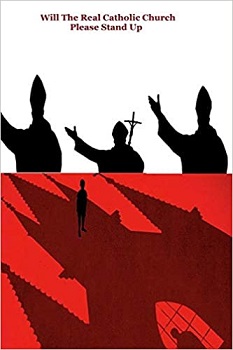










 Follow
Follow


